At a recent tasting of German and Austrian wines, the rieslings from Helmut Plunien’s Vols winery stood out for their minerality and purity.
In the early 2000s, Plunien, who studied winemaking and worked at various Germany wineries, began farming two small plots as a part-time endeavor in the highly regarded Braunfels vineyard in Wiltingen, a village in the Mosel region’s Saar Valley. He named his wine Vols in remembrance of a micro-parcel in the Braunfels vineyard that was eliminated by the German wine authorities in 1971.
In 2009, Plunien became a full time vintner with the purchase of the 17-acre Altenhofen estate in nearby Ayl with its superb holdings in the renowned Kupp vineyard, whose slate soil is a hallmark of Saar vineyards.
At that time, the Saar—which had a reputation for sweet and simple wines—was undergoing a renaissance as wealthy individuals outside the wine industry bought estates and changed the styles to dry and off-dry wines, in keeping with changing customer preferences.
Most German wines, including those from Mosel, are classified by the ripeness of the grape at harvest. Kabinett is the lightest style of riesling, made from grapes that have a sweetness level of 148–188 grams per liter of sugar, and considered dry or off-dry. The sweetest is Trockenbeerenauslese (TBA), the full-bodied dessert wine made from noble-rotted grapes (botrytis), and whose residual sugar has no statutory limit (only a minimum of 150 grams), but often reaches 300 grams/liter.
Somewhere in between is Spätlese, which means “late harvest” and whose grapes have a sweetness level of 172–209 g/l sugar. Spätlese wines are rich and usually sweeter than Kabinett.
My tasting of Vols contained Kabinett and Spatlese wines, which—like most German wines—have low alcohol levels of 7 to 10 percent, and that I find particularly refreshing on hot days, and appealing in a world of 14 to 15 percent alcohol.
I began with the 2017 Vols Ayler Kupp Riesling Kabinett. Harvested in the first week of October from the gray-blue slate soil in the steep Kupp hillside vineyard, I was immediately struck by the herbal, spice and white nectarine aromas. Apple and mineral flavors ride delicately on the palate, finishing long and dry. This wine is 7.5% alcohol and 100% focused. 89 points. Retail prices range from $18 to $26. It is remarkable value at less than $22.
The 2017 Vols Ayler Kupp Stirn Riesling Kabinett is grown at the highest point of the vineyard. The blue and grey slate gives a smoky accent to the very aromatic white fruit and herbal scents. The light body contains white peach and pear flavors and is lined with a stony backbone, bringing harmony to the slightly off-dry taste. It’s 8% alcohol and delightful. 90 points. Retail price is about $33.
Grown in red slate, the 2017 Vols Wiltinger Kupp Riesling Kabinett has a greater fruit presence than the other two Kabinett rieslings. The smoky, herbal accents are connected to very ripe apple, pear and peach aromas and flavors. The interplay of minerality, fruit and herbal flavors on the light, Kabinett body is captivating. It’s 8% alcohol and tantalizing. 89 points. Retail prices range $22 to $26.
Ten days after the harvest of the Kabinett wines, Plunien picked the grapes for the 2017 Vols Wiltinger Braunfels Riesling Spatlese Vols I. Replying to my observation that the wine’s aroma reminded me of Stollen, the German Christmas cake, Plunien said that 30% of the grapes were affected by botrytis. The wine is richer than the Kabinetts, with more intense flavor of pear and a hint of mango. The minerality keeps the wine balanced and the palate fresh. It’s 8% alcohol and luscious. 91 points. Skurnik Wines & Spirits is the importer; expect to pay about $35 to $39 when it reaches retail stores.
Harvested during the third week of October, the 2017 Vols Wiltinger Braunfels Riesling Spatlese Vols II is botrytis free. The red-slate soil lined the intense white peach, nectarine and apple aromas and flavors with a saline acidity that keeps the palate clean. Built with excellent balance and a long, pleasing finish it’s 8.5% alcohol and flamboyant and exquisite. 92 points. Skurnik Wines & Spirits is the importer; expect to pay about $35 to $39 when it reaches retail stores.
The Vols wines stood apart from the other rieslings in the tasting, Plunien captured the unique qualities of Saar riesling and his vineyards. Don’t miss these uncommon wines.
Photos by John Foy

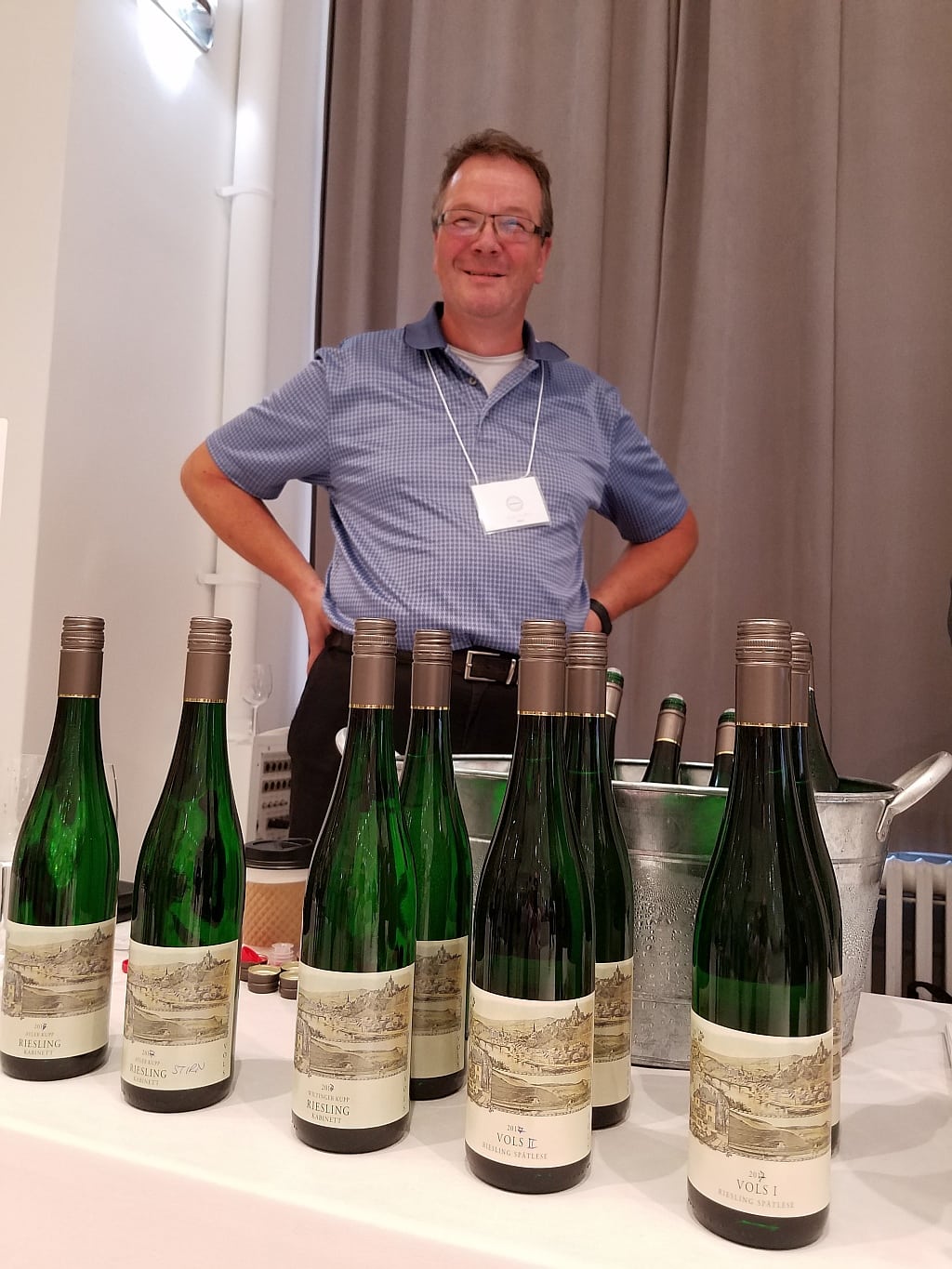


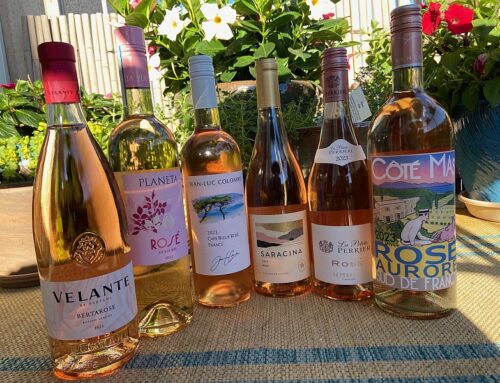
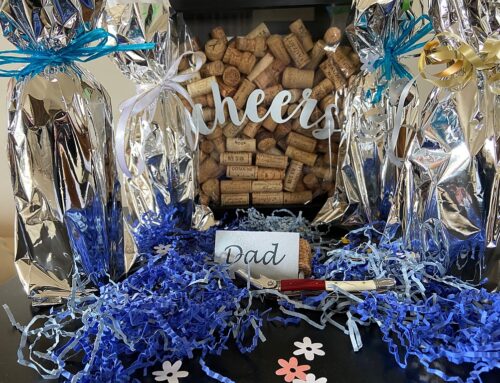
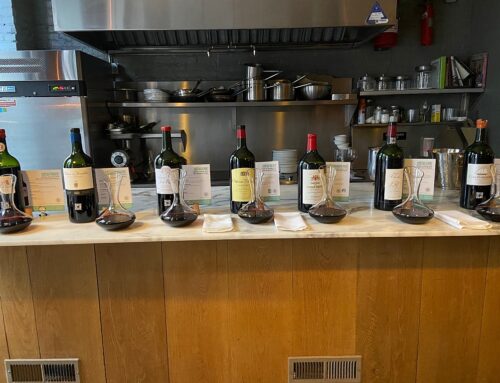
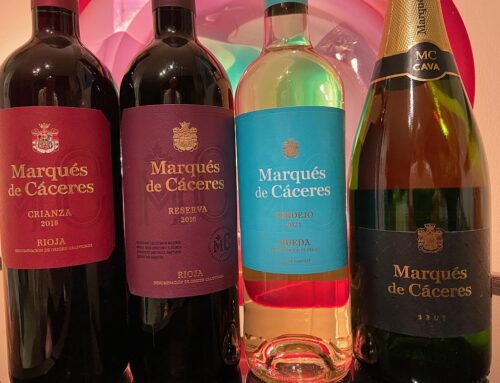
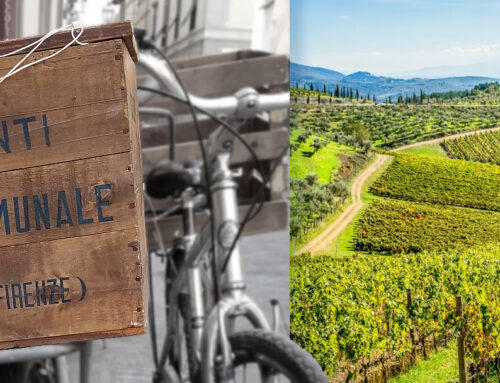
Leave A Comment